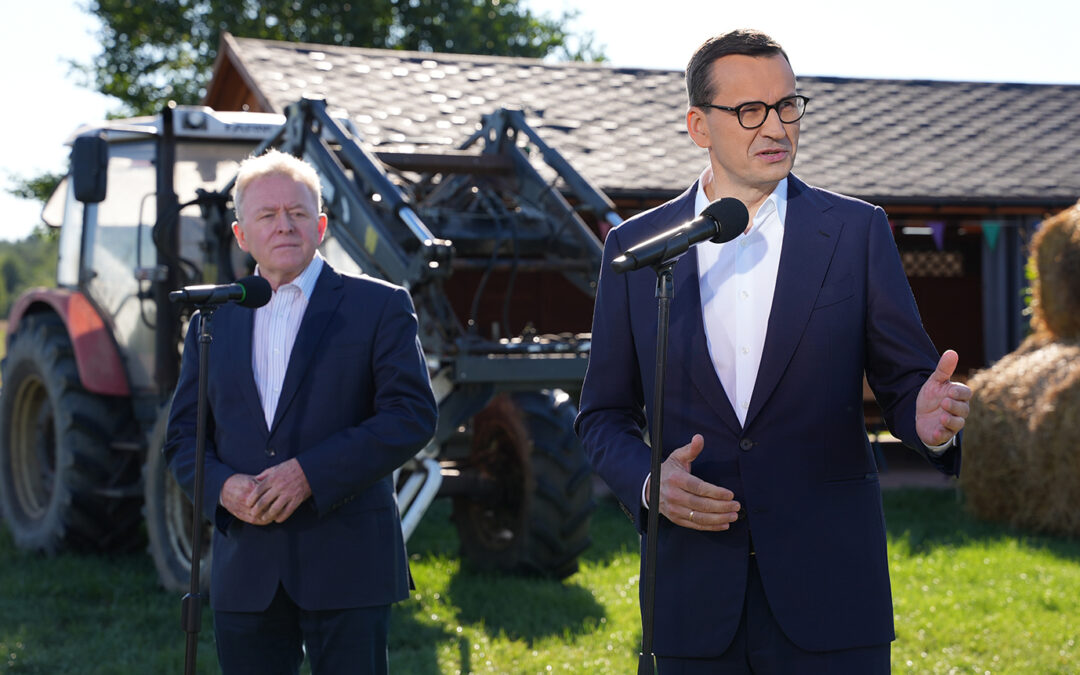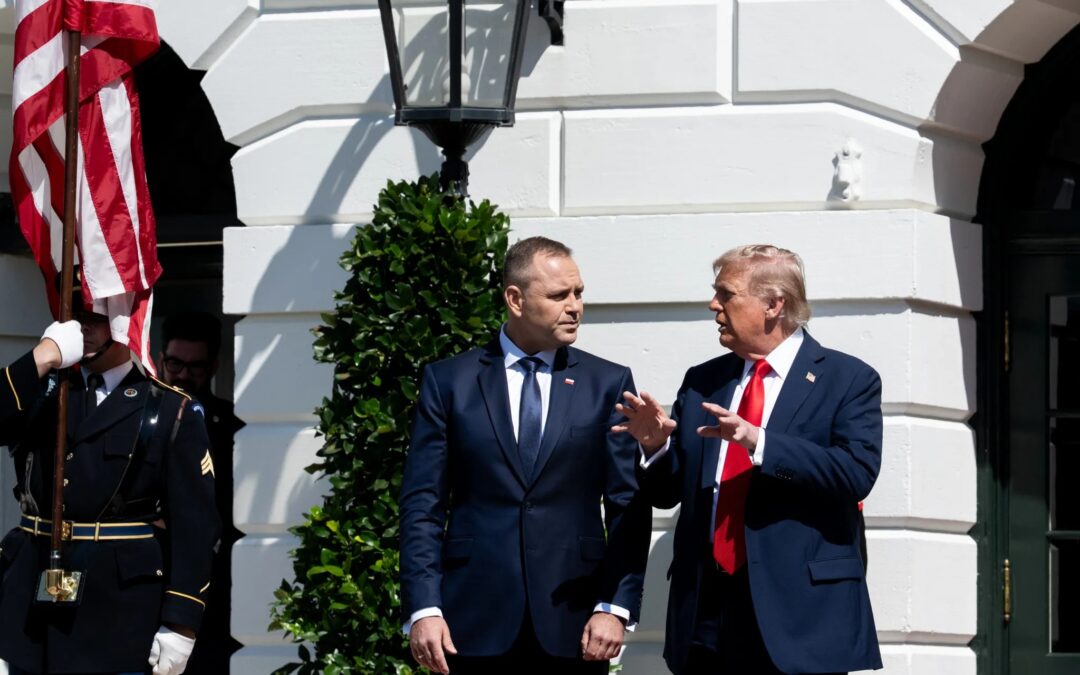The EU has reached an agreement to ban the import of Ukrainian grain to Poland, Slovakia, Hungary, Romania and Bulgaria while letting transit through those countries take place, European Commissioner for Agriculture Janusz Wojciechowski has announced.
Poland’s prime minister, Mateusz Morawiecki, has welcomed the decision. Two weeks ago, his government unilaterally imposed a ban on the import and transit of Ukrainian agricultural products in response to protests by Polish farmers, who said Ukrainian produce was lowering prices on the market.
That ban prompted an angry response from Kyiv, which said that it violated existing agreements, and Brussels, which noted that the EU has exclusive competence over trade policy. However, it was followed by similar moves from Slovakia and Hungary, which also border Ukraine.
Poland has introduced an immediate import ban on agricultural products from Ukraine, including grain, following protests by Polish farmers.
Kyiv says it “regrets” Warsaw's unilateral decision, which is “contrary to arrangements” between the two countries https://t.co/NdLjPsQ0Vl
— Notes from Poland 🇵🇱 (@notesfrompoland) April 15, 2023
Last week, Warsaw made a deal with Ukraine to allow transit to resume after measures were put in place to prevent products from entering the Polish market. However, the import ban remained in place and negotiations with the EU continued.
Today, Wojciechowski announced that an agreement had been reached to introduce a ban on imports of wheat, corn, rapeseed, sunflower seeds and sunflower oil in Poland, Slovakia, Hungary, Romania and Bulgaria but with transit allowed to continue, reports TVN24.
Such an EU ban is “unprecedented”, noted Katarzyna Szymańska-Borginon, the Brussels correspondent for broadcaster RMF. As a result, Poland will lift its own unilateral ban.
“This is a great achievement for Poland, which was the leading country in bringing about these solutions,” said Wojciechowski, quoted by Polsat. “It is also a success for other countries effected by the situation in the grain market and, I think, a success for the European Union.”
Według Janusza Wojciechowskiego porozumienie spowoduje, że kryzys "nie będzie dalej trwał".https://t.co/7U1XBwyRQg
— TVN24 BiS (@TVN24BiS) April 28, 2023
The EU was not able “to act preventatively”, noted Wojciechowski. “The free market is a fundamental principle of the EU, [and] not interfering in this market as long as possible is also the principle of the EU…Actions are only possible when serious market disturbances are confirmed.”
The remaining eight types of agricultural products from Ukraine that Poland had previously banned – including poultry, eggs, honey and milk – will be investigated by the European Commission to determine whether they destabilise the common market.
Meanwhile, the commission will prepare a €100 million aid package, of which €40 million will go to Poland, according to TVN24.
Poland has lifted its ban on the transit of Ukrainian grain through its territory.
Transports will be sealed, escorted and electronically tracked, to ensure that the produce does not remain in Poland.
A ban on importing grain to Poland remains in place https://t.co/pQsxTAUqhY
— Notes from Poland 🇵🇱 (@notesfrompoland) April 21, 2023
This afternoon, Morawiecki also confirmed that the government has “finalised arrangements with the European Union regarding the ban on imports of agricultural products”.
“I am glad that our strong voice – the voice of five countries, because I built a coalition of countries speaking with one voice on NATO’s eastern flank – has been heard in the EU,” he added, quoted by news website Wirtualna Polska.
Morawiecki also confirmed that Poland would submit an application for the European Commission to examine potential market violations relating to poultry, eggs, and dairy products, reports the Polish Press Agency (PAP).
Poland’s decision to ban Ukrainian grain – angering both Kyiv and Brussels – highlighted how important rural votes are for the ruling party as it bids for re-election.
Rural areas account for 40% of Poland's population, one of the highest levels in the EU https://t.co/QI2WRqUHaT
— Notes from Poland 🇵🇱 (@notesfrompoland) April 25, 2023
Main image credit: MRiRW (under CC BY-NC-ND 3.0 PL)

Daniel Tilles is editor-in-chief of Notes from Poland. He has written on Polish affairs for a wide range of publications, including Foreign Policy, POLITICO Europe, EUobserver and Dziennik Gazeta Prawna.




















